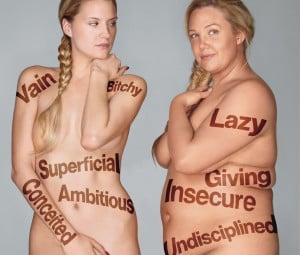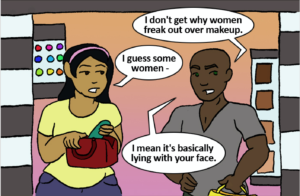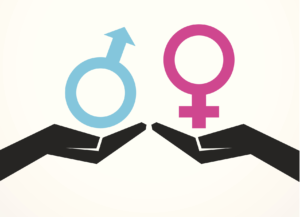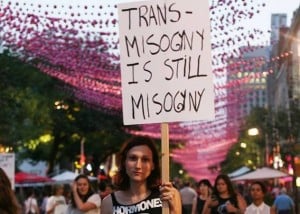Whether it’s through movies, TV shows, or magazine articles, we’re constantly being bombarded with advice about what’s romantic. We have quizzes to figure out if someone’s interested in us and advice columns to plan the perfect date (I would know –I’ve written one).
There are also plenty of articles about inspiring fictional couples, including this one about couples who’ll restore your faith in marriage.
The couples on that list communicate, support each other, and most importantly, have fun together. Those are all definitely things to aspire to in our own romantic relationships.
Unfortunately, there are other popularized “romantic” behaviors that actually aren’t romantic at all.
For example, I’ve heard too many people say that they’d want their significant other to be jealous and possessive. To them, jealousy is a sign of deep emotions.
I mean, it sure is, but not of the romantic kind.
Jealousy means resenting someone for having something you don’t, whether it’s a talent or a new car. It’s certainly a natural feeling, and it’s okay to feel jealousy, but how you express it matters. And a lot of times, it’s not okay to be a jealous partner. A significant other isn’t the same as a car, after all. They’re not an object you can acquire or own.
If you think about it from that angle, jealousy is more objectifying than it is romantic.
Yet there are plenty of people who find Edward’s jealous and possessive behavior in Twilight romantic and long for the same thing. The same goes for Christian Grey in 50 Shades of Grey and even Snape’s obsession with Lily in Harry Potter.
There are plenty of other popular “romantic” behaviors which are actually unhealthy. They get promoted through fictional media, through songs, and even through our own social circles.
It doesn’t make you a bad person if you find behaviors like jealousy romantic. We’re all told the same messages, after all.
However, it’s important to recognize that those behaviors are harmful. In fact, some of them are downright abusive, which is why I’ve compiled this list of the most common ones — as well as explanations about why they cause more hurt than romance.
1. A Jealous Partner Is a Caring Partner
Edward Cullen and Christian Grey both exhibit unhealthy and abusive behaviors (let’s put aside for the moment that, since 50 Shades of Grey is essentially Twilight fanfiction, they’re the same person).
One of these behaviors is jealousy. They’re jealous of other people that their partners spend time with, whether it be friends or family.
You might argue that their jealousy is a sign of romance. They love their partners deeply, so they always want to spend time with them.
People I knew in high school would say that they wanted their partners to be jealous, and more than one expressed the desire to deliberately make their partners jealous so they would feel cared for.
However, as I explained in the introduction, jealousy is more about objectification than about romance.
Because they see their partners as property, Edward and Christian become upset when other people spend time with them. If they own their partner, they shouldn’t have to share them with anyone else.
But this isn’t a healthy way to think. A romantic partner isn’t property. They’re an independent person with a social life separate from their significant other’s.
A constantly jealous partner is someone who resents their significant other for having that separate life. Their resentment isn’t borne from romance. It’s borne from a desire to keep their partner all to themselves.
Isn’t that what romance is, though? Wanting someone all to yourself?
No, not really.
I’m not going to sit around and wax philosophic about what romance is, but I can tell you for sure that it’s not trying to keep someone all to yourself.
What that is, is control.
A jealous partner is a partner who wants to isolate their significant other. They want their partner’s world to revolve around them, with no room for friends or family — and that’s a warning sign for abuse.
2. Having No Boundaries Is a Sign of Intimacy
What does having boundaries mean? Basically, it’s drawing lines about what you are or aren’t comfortable with. This can encompass both actions and words.
Respecting someone’s boundaries means listening when they tell you that something makes them uncomfortable, and then not doing that thing.
And no matter what TV shows, advice columns, or your friends tell you, boundaries are essential. This is true of all relationships, including romantic ones.
It’s easy to think that boundaries destroy intimacy. If you can’t share anything and everything with your partner, are you even close at all?
On the other hand, if you’re free to say or do whatever you want with your partner, then it means that you’re comfortable with each other, right?
This is not true.
Boundaries get violated a lot in fictional narratives, especially between couples. One of the most common examples of this is stalking. Edward stalks Bella, even going so far as to sneak into her room at night to watch her sleep.
Christian stalks Anastasia to her place of work, and furthermore, coerces her into doing things that she’s uncomfortable with.
The Phantom in Phantom of the Opera follows Christine without her knowledge and even kidnaps her – more than once.
Other forms of violating boundaries include pursuing someone even after they’ve said no, reading or prying into things which the other person has deemed private, and touching them without their consent.
What boundaries boil down to in the end is consent.
Did your partner say that it’s okay for you to do this thing? Do they even know that you’re doing this thing (such as following them around)?
If they don’t know, they didn’t consent, and it’s not okay to do it.
People have told me that respecting boundaries isn’t important when you’re close to someone because your intimacy means that there can’t be any discomfort no matter what you do.
Honestly, that’s utter bullshit.
It’s like that white person who says it’s okay to make racist jokes around their friends of color because they’ll understand that it’s “just a joke.”
At the end of the day, racism is racism – and ignoring someone’s boundaries is violating them.
3. Constant Clashing Is a Sign of Chemistry
The idea of the bickering couple has been popularized by books like Pride & Prejudice and just about every TV show ever. You know the couples: the ones who fight all the time, break up, then get back together only to repeat the process all over again.
Their constant arguments are supposed to be a sign of chemistry. They can’t stop clashing, but they also can’t stop being drawn back to each other.
They’re often contrasted to the cheesy, mushy couple who are always all over each other. That couple is supposed to be boring because they never have any conflict.
First of all, no couple has zero conflict.
Second of all, constantly fighting with your partner isn’t healthy. I’m not saying that you should never, ever argue with your partner. Like I said, no couple has zero conflict.
But if you’re constantly clashing to the point where you’re in tears or ready to break it off, then that’s not healthy.
The montage in The Notebook where the narrator states that the main characters “didn’t agree on much” always confused me. If you don’t agree on anything with your partner, what draws you to them? What do you talk about?
The montage is also a good example of an unhealthy fight. My eyebrows go up all the way to my hairline whenever I watch Ryan Gosling and Rachel McAdams yelling, slapping, and grabbing each other.
Those things aren’t romantic. They’re violent.
You might think that the reason they raise their voices or slap each other is because of the sheer passion they share, but that’s not why. They do those things because they’re angry and want to take it out on each other.
The biggest sign that these kinds of fights are unhealthy is that they never get resolved. As far as I can tell, Ryan Gosling and Rachel McAdams yell a lot, then kiss and forget that they were ever angry.
In other words, they just sweep all that violence under the rug, only to pull it out again the next time they lose their tempers – which sounds a lot to me like the cycle of violence.
That’s not healthy. How can taking out your anger on someone over and over again ever be?
Which leads me to my final point…
4. You and Your Partner Hurt Each Other Most Because You’re Closest to Each Other
There’s a common belief that the people closest to you are the ones who can hurt you most. That can be true. After all, the closer someone is to you, the more likely they’ll know what words will hit home.
That doesn’t mean that throwing those words out is a sign of intimacy. Like getting violent when you argue, it’s a sign that you’re trying to hurt your partner.
How many times have we watched fictional couples on TV say things that they know will wound their partner? We’re supposed to believe they can’t control themselves. But the truth is, they can.
Think about it this way: We lose our temper at people a lot, from loved ones to strangers. When it’s strangers, however, we (usually) don’t give in to our urge to yell rude things at them.
That’s exercising control, isn’t it?
Saying hurtful things isn’t a side effect of passion. It’s a warning sign for abuse.
Abusive partners mock and degrade their partners. It’s their way of destroying their partner’s self confidence, telling them that they’re not good enough to be with anyone else.
And there’s no romance in that. Only control.
***
Romance is something a lot of people want (which is not to say that all people want it, of course). That’s part of why it gets talked about so often, whether between friends or in fictional media.
Sometimes the messages we get about romance are good, like the fact that it can come in any way, shape, or form.
Other times, the messages are harmful, like the idea that jealousy is a sign of caring, or that not respecting your partner’s boundaries is a way to show intimacy.
It’s important to recognize when what we’re being told is romantic are, in fact, harmful. Because there’s no one definition of romance, but if there’s one thing I think we can agree on, it’s that romantic relationships should make us happy way more often than they make us sad.
[do_widget id=’text-101′]
Kerry Truong is a Contributing Writer for Everyday Feminism. They are a queer diasporic Vietnamese womxn and graduated this spring with a double degree in English and Asian American Studies. When they’re not philosophizing about this at length, they’re reading, taking long walks, or cooing over all the dogs who cross their path. Read their Everyday Feminism articles here.
Search our 3000+ articles!
Read our articles about:
Our online racial justice training
Used by hundreds of universities, non-profits, and businesses.
Click to learn more





















